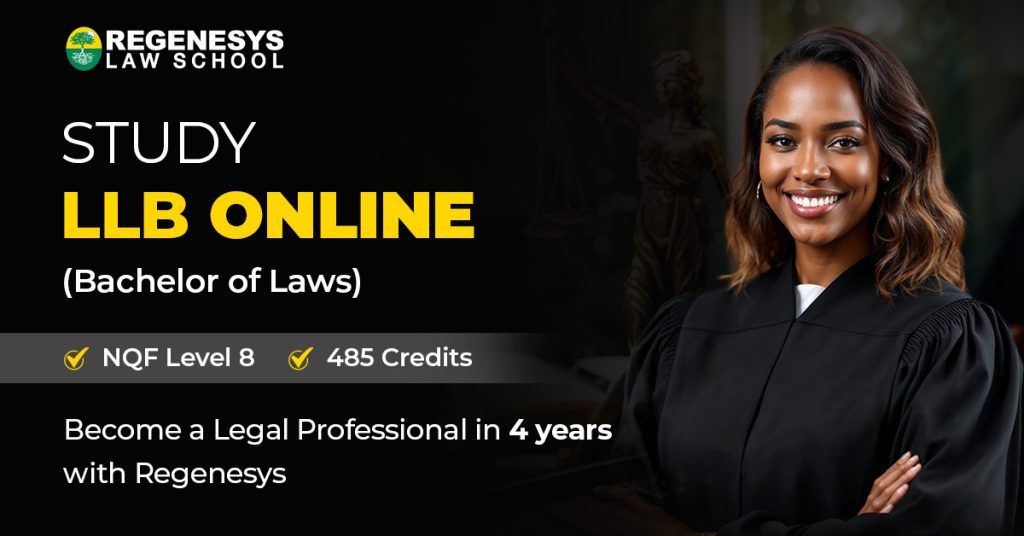In South Africa, law is one of the most respected fields, as it is the backbone of social order. Students who complete a law degree can become practising attorneys, advocates, prosecutors, and judges.
Choosing where to study law is one of the most important decisions that high school students will make. There are various public universities and private institutions that offer accredited Bachelor of Laws degrees in South Africa.
In this article, we will cover some of the best law universities in South Africa and what helps them stand out. This will help to make it easy for students to apply for a programme that best matches their requirements.
Table of Contents
Introduction To Law Schools In South Africa
Law schools in South Africa offer accredited 4-year Bachelor of Laws programmes. These programmes are structured to offer a broad and foundational understanding of the legal framework in South Africa. The best universities for law in South Africa prepare conceptually sound graduates.
A Bachelor of Laws (LLB) is one of the few undergraduate degrees that is aligned with NQF Level 8. This indicates the depth of the programme and the amount of responsibility that is placed on the graduates.
The best law universities in South Africa have competitive entry requirements to attract the top Matric graduates. Students who graduate from their law programmes can confidently appear for post-law school exams.
Read more on Why Choose an LLB Programme in 2026? here

Law Universities in South Africa
Choosing among higher education institutions can be difficult, as each offers a different learning environment, teaching approach, and entry criteria. South Africa is home to several accredited law programmes. While most are offered on campus, some programmes, such as the one offered by Regenesys Law School, can be completed online.
Let us look at some of the best universities to study law in South Africa, focusing on what makes each one special and why it’s an excellent option for future lawyers.
University of Cape Town (UCT)
UCT has the oldest law programmes and is one of the top 10 law universities in South Africa. Undoubtedly, it has one of the most competitive admission criteria, and students need to appear for the National Benchmark Tests.
In addition to the law programmes, UCT also runs short courses and seminars on current legal topics.
University of Witwatersrand (Wits)
Wits is another name that regularly appears among the best law universities in South Africa. Students require an APS Score above 46 to be eligible for the 4-year law programme.
In addition to this, students can also enrol for the 2 or 3-year law programme. These are for students who have already completed an undergraduate degree. APS scores are not required for these programmes. The law programme curriculum includes practical training through the Wits Law Clinic.
Regenesys Education
Offered by the Regensys Law School, our 4-year LLB programme is offered in a contact and online study format. This makes it more accessible for students in South Africa to complete a law degree and become practising lawyers.
The core modules of our law programme allow students to develop a thorough understanding of various aspects of the law. The elective modules allow students to focus on a particular area, which they might be interested in exploring further.
University of Johannesburg (UJ)
The law programme offered at the University of Johannesburg combines theoretical knowledge with practical application. The urban location offers easy access to legal clinics and courtrooms.
In addition to the LLB, the university also offers a BA and BCom in Law. However, these do not allow graduates to become practising lawyers.
This is one of the best law universities in South Africa for students seeking an urban environment where they can easily network and build connections.
University of Pretoria (UP)
The University of Pretoria law programme is designed to offer a strong understanding of various principles guiding South African law. The university has a strong focus on research and includes several research units across various faculties, including law.
This is one of the best law universities in South Africa, and to gain admission, applicants require an APS Score of 35 or above.
UNISA
When talking about studying law in South Africa, it is impossible not to mention UNISA. It is the largest open distance learning institution in Africa. This law programme helps to make accredited law education more accessible to those who are trying to manage studying with working and other responsibilities.
UNISA offers multiple entry points for entry to their law programme. Students can also apply for bursaries and loans to help cover the cost of this degree.
Read more on Exploring the Flexibility of Online LLB Programmes here

Private vs Public Law School Comparison
Students in South Africa can choose to study law in public universities or private institutions. Both offer accredited legal education that prepares graduates to practice law in South Africa. However, the choice depends on students after they have evaluated the public and private law schools.
The table below provides a comparison and makes it easier for students to decide on their institution of choice:
| Factor | Public University | Private Institution |
| Class Size | Larger due to funding and scale | Smaller for personalised education |
| Admission Requirements | More competitive; requires APS Score | Flexible admission routes, including NQF equivalent qualification |
| Tuition Fees | Lower due to government funding | Higher |
| Learning Environment | Traditional and mainly theoretical | Modern industry-oriented approach |
| Flexibility | Not always available | Possible to enrol in online classes |
The Regenesys LLB programme is designed to offer a foundational understanding of the South African legal system. This accredited programme allows students to practice their knowledge through moot courts, case studies and projects. In addition to theoretical knowledge, students develop the skills required to succeed as a Lawyer.
Read more on The Highest-Paying LLB Careers You Must Know About here
Eligibility Criteria for Law University
Students need to meet the eligibility criteria for admission into an LLB programme. This ensures that students are prepared to meet the demands of this 4-year undergraduate degree.
Listed below is the criteria for admission for the Regenesys Bachelor of Laws:
- Matric with Bachelor pass or NQF level 4 equivalent qualification.
- English 1st – 50% | English 2nd – 60%.
- A levels for International students (Africa).
- Higher level pass for international students 26 APS.
- Competent in Mathematics, English, written and oral communication skills at NQF Level 4.
- Basic computer skills, internet connection and relevant IT resources.
Law Universities Application Process
Whether you’re someone looking to advance your career or a new graduate keen on studying law, it is important to begin the application process early. Law schools might follow a slightly different set of criteria, deadlines, and required documents. Therefore, students need to make a list to keep track and not miss their submission.
Listed below are the steps students can follow for admission to the prestigious Regenesys LLB programme:
- Visit the Bachelor of Laws programme page
- Check programme requirements
- Complete the application form
- Submit the application fee
- Finish the documentation process
- Pay fees and start enrolment.
Read more on LLB Career Advantages: Benefits of Holding an LLB Degree here

Explore Our Other Programmes
Conclusion
Students in South Africa can choose from various public and private instituiotns when it comes to pursuing an LLB degree.
Knowing the admission criteria and application process helps aspiring lawyers begin their journey toward earning a Bachelor of Laws degree and making a positive impact on society through their legal careers.
The Regenesys Bachelor of Laws degree is a prestigious law programme for contact and online learning in South Africa.
Enrol for our accredited Bachelor of Laws today on the Regenesys Education website and take the first step towards making a difference through law!

FAQs
Regenesys Education, University of Johannesburg, and Wits University are some institutions offering law programmes in South Africa.
Students require a Matric with Bachelor’s Pass to be eligible for admission to a law programme. Institutions also have additional criteria for admission.
Some law schools, including Regenesys Law School and UNISA offer online programmes.
Law programmes are designed to combine practical experiences, such as moot courts, drafting, and negotiation with theory.
Students should compare the offerings of both types of institutions to see which best matches their requirements. Private institutions typically offer smaller class sizes and a personalised learning experience.







